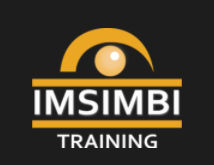Download course outline?The current recession is forcing many organisations both in business and government to look critically at how we spend our money.

The current recession is forcing many organisations both in business and government to look critically at how we spend our money. What value are we generating from the efforts we put into the various programmes and projects we finance?
Good governance demands that organisations account for organisational performance through results based management processes and procedures. Careful tracking and evaluation of the outcomes and impacts of our projects and programmes is essential for strategic evidence based policy remediation and formulation.
In the international arena (i.e Australia and Columbia), there has been a broad shift over the past two decades towards toward evidence-based decision making in government.
There is a wealth of information associated with measuring and tracking the progress of developmental progress across the globe (World Bank Development Indicators, UNCHS, Global Observatory etc).
The management process makes use of a set of closely integrated professional support functions such as:
Strategic planning
Policy management
Legal review
Financial planning
Programme and project management
Performance management
Monitoring and evaluation
All of these functions are important in the pursuit of results. The results based approach to monitoring and evaluation differs in significant ways from the more traditional public sector management approach.
In the older approach the emphasis was on whether budget was spent on a programme or policy together with a monitoring of inputs used and outputs achieved.
The results based management approach, while not discounting the tracking of inputs and outputs insists on evaluating the outcomes and impacts of policies on communities, the environment and value for money.
Results based approaches typically ask higher order questions and try to address the "so what?" question 500 RDP houses were completed within 60 days in Soweto - SO WHAT? What quality standards were adhered to and what value did they add to the community?
Results based systems attempt to answer questions like:
What key outcomes and impacts were formulated around this programme or policy by government?
Have these impacts and outcomes in fact been achieved?
Are these outcomes and impacts sustainable and replicable in other contexts?
Questions like these are crucial for effective strategic planning and evidence based policy- formulation. It should be clear then that leaders and managers in organisations, public and private, need to deepen their understanding of results based monitoring and evaluation.
The course aims at empowering you to plan, implement and direct the phases of robust and results based M&E framework.
Imsimbi Training provides a one stop shop service for all your training needs, with excellent client/account managers attending to your every need.
Imsimbi is committed to transformation in South Africa, and we try and live these values as a company.
Imsimbi Training is a level 1 BBBEE company. We are a 51% black-owned company.
The Imsimbi staff trust owns 10% of the company. The Staff Trust is mostly made up of black female youth.
Black women ownership of Imsimbi is 8.39%.
The designated individuals in the Imsimbi ownership structure is 15.39%.
Imsimbi Training has been a Level 1 BBBEE company for the past two years, and we are confident that we will keep this level 1 BBBEE score going forward.
Imsimbi spends between 20-30% of its profits per annum on socio-economic development for poor black communities. Imsimbi spends over R1 million per annum on bursaries for unemployed black youth.
© 2025 coursetakers.com All Rights Reserved. Terms and Conditions of use | Privacy Policy